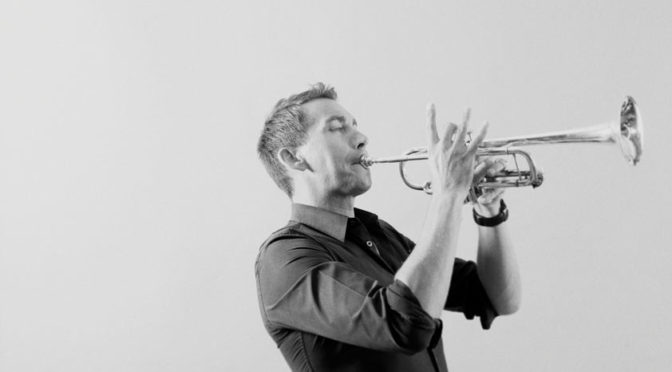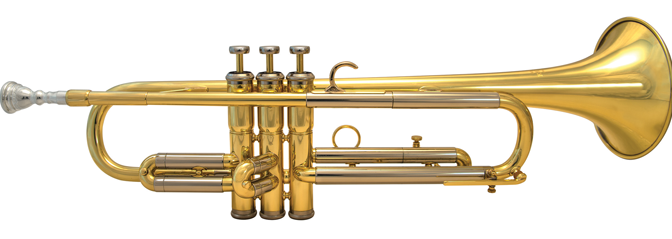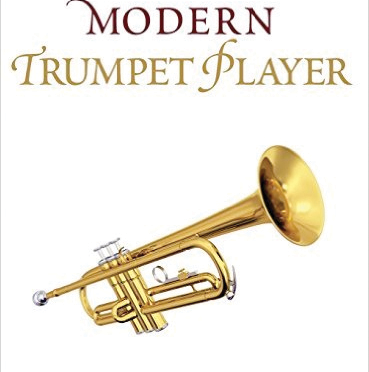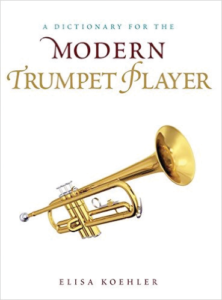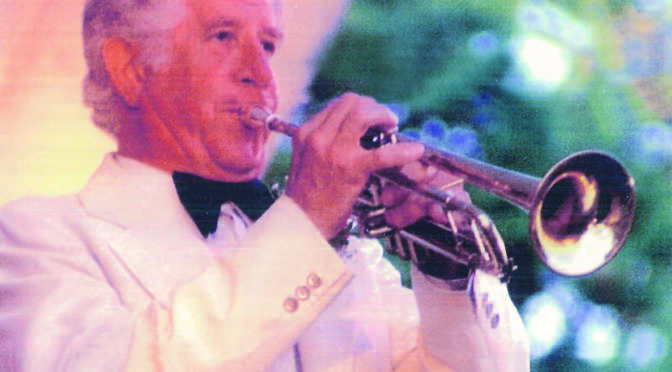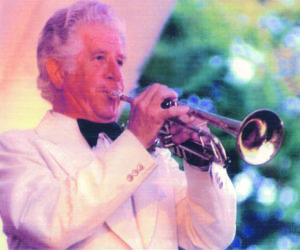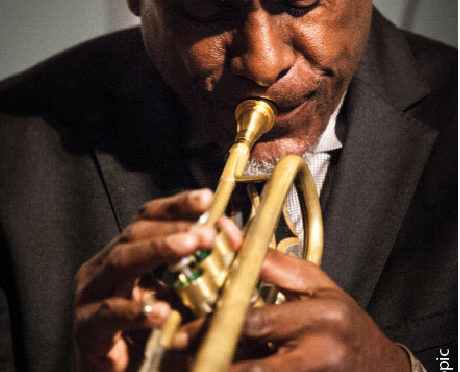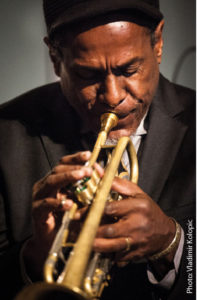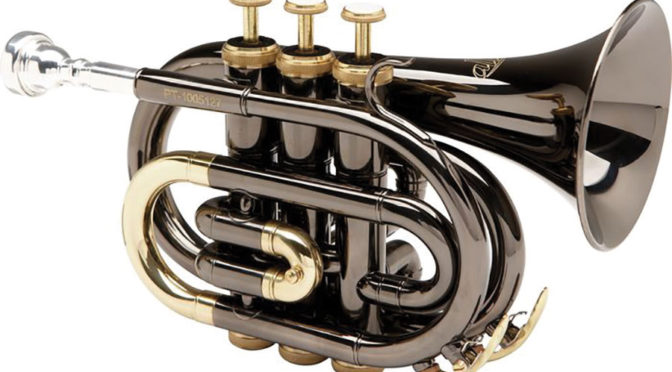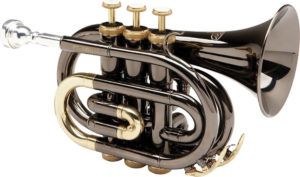Buy this issue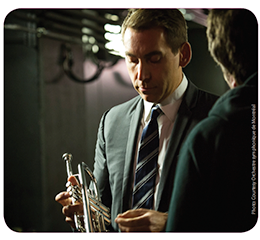 Trumpet virtuoso Paul Merkelo of Local 406 (Montréal, PQ), soloist and principal for Orchestre symphonique de Montréal (OSM) since 1995, has been recognized for both his technique and virtuosity. The international performer has been a soloist and has taught master classes in North and South America, Europe, Russia, and Asia.
Trumpet virtuoso Paul Merkelo of Local 406 (Montréal, PQ), soloist and principal for Orchestre symphonique de Montréal (OSM) since 1995, has been recognized for both his technique and virtuosity. The international performer has been a soloist and has taught master classes in North and South America, Europe, Russia, and Asia.
“When I travel to other countries to perform, it opens my eyes and ears to other styles of playing and interpretations. This has helped me grow as an artist, and I’m constantly inspired by great players I hear,” says Merkelo. He explains how he then draws on those influences for OSM.
Merkelo was appointed Canadian musical ambassador to China for the 1999 inauguration of Montreal Park in Shanghai and performed the Haydn trumpet concerto with the Shanghai Philharmonic Orchestra on national TV. He says that during international trips, language is not a barrier as he tells his musical story through his instrument, which affects the audience from an emotional standpoint.
“All musicians speak the same language—we all want to be moved by music. The more I travel, the more I realize how important what I am representing is,” he says.
Given his international presence, it’s not surprising that Merkelo was pleased to hear the International Federation of Musicians International Orchestra Conference (FIM IOC) would be held in Montréal. “It signifies that there’s a lot of cultural activity going on in Montréal. The audiences in Québec are very supportive of classical music, and the arts as a whole. I’m really proud that it’s going to be here,” he says.
But, Merkelo knows that the need for international organizations like FIM goes beyond the cultural aspect of sharing music. With continued growth in digital music, and the ease with which music can be shared globally, musicians need protection. “We need continued support of international federations to protect all artists who are trying to make a living through recorded music at a time when consumers are accustomed to receiving it for free,” he says.
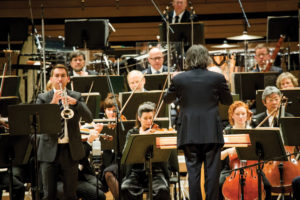
Local 406 (Montréal, PQ) member Paul Merkelo performs with Orchestre Symphonique de Montréal, under the direction of Kent Nagano.
He says that orchestra musicians like himself are fortunate to have union contracts. “There is stability and protection in terms of work hours and restrictions on touring and recording. Our union protects us so we can play our best and not have to worry about excessive work conditions. If we have an injury, or need time off, we can take the time to heal properly,” he says. “Beyond that, I am proud to be first trumpet for the Orchestre Symphonique de Montréal and I’m proud that we are supported by the AFM.’’
Merkelo says OSM is unique. “We are an integrated and diverse orchestra; there are many Québécois musicians, Canadian musicians, American musicians, and other international colleagues,” he says, which helps to create a distinctive sound. “You could say it sounds North American, but also European.”
“There’s definitely a virtuosic flare that makes the orchestra very agile, colorful. We are able to switch gears quickly, for example, between the French repertoire and the German repertoire,” he continues. “This is what I love about the Montréal symphony. My colleagues and I work very hard to get into the repertoire we are playing so we can be really flexible in our approach.”
It’s clear that Merkelo ended up in the right orchestra, though like many musicians, where he ended up was more a matter of happenstance. “When you are a struggling student you audition everywhere,” he says. “You can never predict where you are going to end up.”
“I love my life here in Montréal!” Merkelo says enthusiastically. However, he admits the first year after relocating was a struggle as he didn’t speak a word of French when he arrived. “I had to try to learn French, at the same time I was trying to get my tenure and learning all these big parts—some of them for the first time.”
For the next few years, Merkelo studied French in weekly private lessons and practiced with friends. “I was making a lot of grammatical mistakes. The process took years before I felt confident enough to do an interview in French or to be able to announce a program,” he says. “I still get very nervous. Sometimes I am more nervous about my introductions in French than about the parts I’m playing.”
Almost immediately after arriving in his adopted city, Merkelo became involved in the community, which includes work with OSM’s Manulife Competition for the past 17 years. “We have more than $100,000 in prizes that we give out every year to young Canadian musicians,” he explains.
Twelve years ago he started his own scholarship fund. “Initially I raised $10,000 to launch the foundation as part of the OSM competition, and they were very enthusiastic,” he says. With that original gift and additional fundraising, Merkelo gives away $2,500 annually to one talented young Canadian musician auditioning for the OSM Manulife Competition. “My stipulation is that they have to come from a place of little or no financial means and have the skill on their instrument.”
The scholarship is a way of giving back. While at Eastman School of Music in Rochester, New York, Merkelo was awarded the Rudolf Speth Memorial Scholarship for Outstanding Orchestral Musician, which most likely saved his future career in music. “That was a real game-changer for me in terms of being able to finish my education, not only from a financial perspective, but also to know that other people believed in what I was doing on the instrument—that gave me an amazing push and sense of self-confidence at the point when I needed it most,” he says.
Merkelo also encourages the next generation of musicians through teaching. He is on the faculty at McGill University, and during the summer, at Music Academy of the West in Santa Barbara, California. Plus he’s on the board of directors for the Youth Orchestra of the Americas (Canada). “Teaching, especially one-on-one, is more than just learning how to play the instrument—it’s a mentorship. A teacher needs to be a strong, positive role model; for me, helping to instill a sense of one’s self as an artist, and constant, committed discipline.”
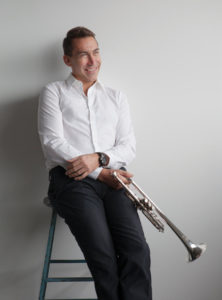
Paul Merkelo Gear Guide
Instruments: “Almost all of my trumpets are Yamaha—my Bb, my C, my flugelhorn, my cornets. I also play a Schagerl rotary valve trumpet from Austria.”
Mouthpiece: “It’s pretty boring! Just a simple Bach 1C.”
Mutes: “I buy almost everything on the market because I like to try different things. I use a Denis Wick a lot; I use a Tom Crown piccolo mute; on my recording of the Tomasi concerto I used an old stonelined cup mute with some leaks and holes in it. It’s kind of a magical mute!”
Merkelo points to the long line of educators who helped him develop as a musician: his first trumpet teacher, Jerry Loyet; former University of Illinois professor Ray Sasaki; former Chicago Symphony Orchestra principal trumpet Adolf Herseth; and former New York Philharmonic principal trumpet Phil Smith of Local 802 (New York City); and Local 10-208 (Chicago, IL) members Charles Geyer and Barbara Butler, who were at Eastman School of Music.
“All of them are great players, but also great individuals, human beings, and role models. All of them changed my life and made me believe that it was possible to be successful on the instrument, but also successful as a person. They taught me to have self-confidence, humility, and work hard. This is what I try to instill in my students,” he explains.
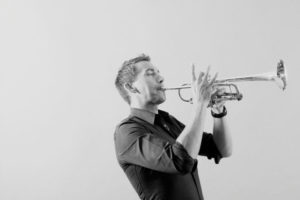 Merkelo is constantly involved in multifarious projects aside from his work with OSM. Last year, Merkelo’s recording, French Trumpet Concertos, was nominated for a Juno Award for Best Classical Soloist with Large Ensemble. He says that the CD, featuring three French trumpet concertos—Tomasi, Désenclos, and Jolivet—was a dream come true. Merkelo funded the project mainly through Kickstarter.
Merkelo is constantly involved in multifarious projects aside from his work with OSM. Last year, Merkelo’s recording, French Trumpet Concertos, was nominated for a Juno Award for Best Classical Soloist with Large Ensemble. He says that the CD, featuring three French trumpet concertos—Tomasi, Désenclos, and Jolivet—was a dream come true. Merkelo funded the project mainly through Kickstarter.
“It was inspiring to record these concertos, under conductor Kent Nagano and with my colleagues at the OSM—arguably one of the best orchestras in the world in interpreting French repertoire,” he says. All of his royalties from the project go to his scholarship fund.
Coming up, Merkelo has a couple of world premieres planned. This summer at the Music Academy of the West, he will premiere “Martha Uncaged” by composer James Stephenson, a childhood friend. “It is a tribute to [dancer and choreographer] Martha Graham for solo trumpet and stage band, and dancers,” he explains.
The other premiere is a concerto for trumpet and full orchestra by John Estacio of Local 390 (Edmonton, AB)—a co-commission with 18 other orchestras all over Canada. Merkelo will perform with OSM for the Québec premiere in October.
“The goal for now is to get new works out there for trumpet that people really love and want to hear again and again,” says Markelo.


